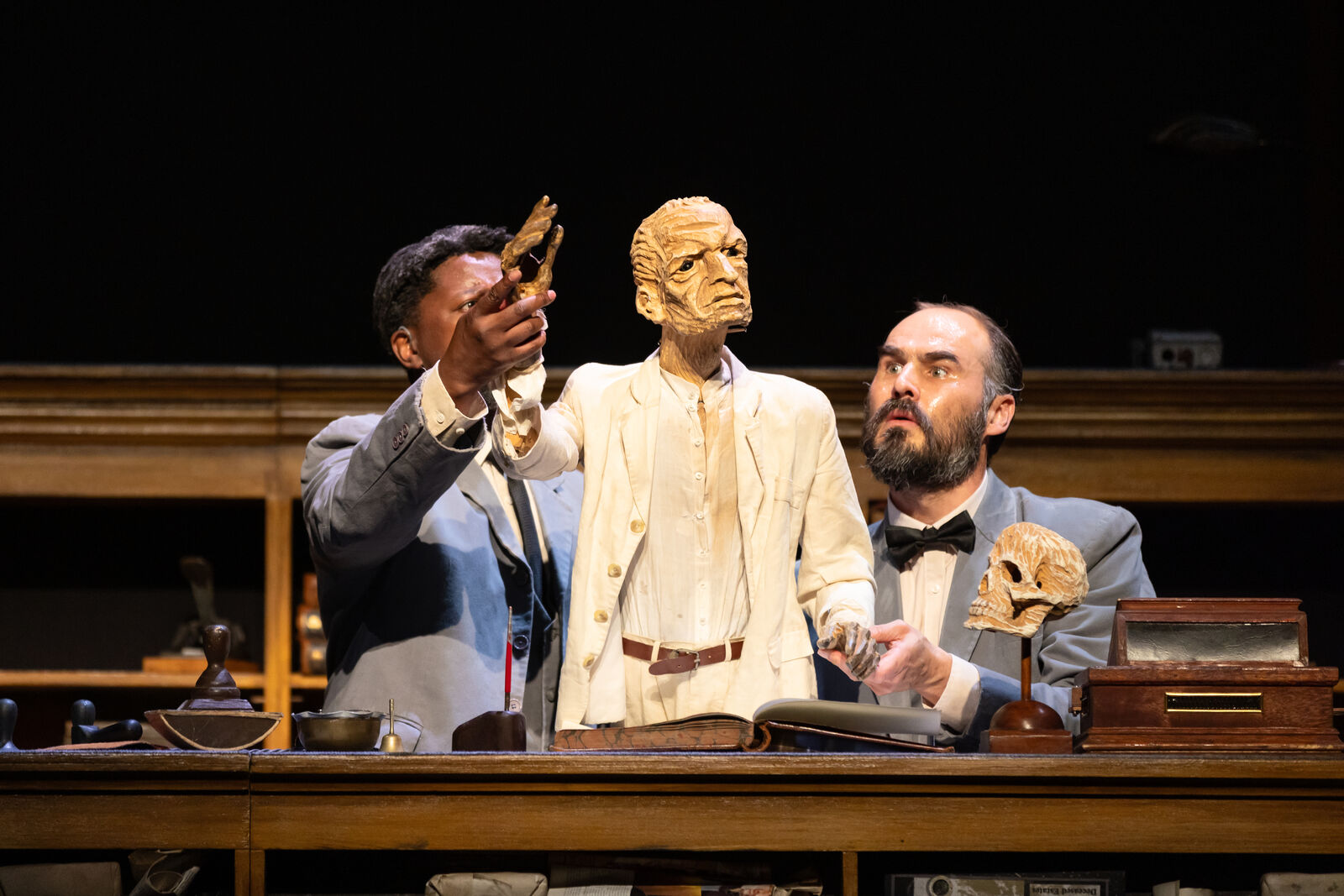Who knew eternal damnation could be so much fun? William Kentridge and Handspring Puppet Company created Faustus in Africa!, an inventive retelling of the Faust story, thirty years ago. Three decades on, the sticky tendrils of colonialism refuse to disappear, and with global temperatures still rising, this restaging from Quaternaire/Paris is perfectly timed.
For fans of Goethe’s original text, there are plenty of nods throughout. Witty, wonderful rhyming couplets, a pesky poodle foreshadowing Faust’s doom, while his first paramour is won with diamonds. And so it goes on. But this Faust can be found in Africa. He’s in love with his books but he’s also in love with the money he makes from dealing in slaves. His embracing of earthy pleasures takes him on a riotous carnival ride through all of the ways in which we are ruining our beautiful planet, playfully sketched in Kentridge’s witty illustrations which form an animated backdrop to much of the action.
Just as you’d expect from the creators of War Horse and Little Amal, the incredible puppets are almost the star of this show. The jazzy hyena, the devil’s obliging hellcat, is glorious sinew and sinister bone, all insidious menace with a cheeky dash of mischief. There’s a glorious witch doctor that’s part dodo and part prehistoric bird, who steals the show when concocting Faust’s rejuvenating draft. And the actors do a glorious job of manipulating the people puppets that it’s easy to forget that Faust’s face isn’t full of human emotion. That said, Wessel Pretorius is so deliciously devilish as Mephistopheles that you wouldn’t be wholly surprised to see he had cloven hooves in his svelte shoes.
You can view this production as a boisterous, bolshy biography of Faust – or you can view it as a scathing indictment of colonialism and our greedy plundering ways, blithely robbing people and nature to serve our selfish gluttony. Either and both are brilliant. In a final twist, Mephistopheles himself rejects God’s attempted intercession and decides to stick with messy manhood to continue his mischief-making. It’ll leave you questioning our role in this: are we the colonisers? Or do we in fact, believe ourselves the puppet masters, stubbornly refusing to hear the world calling time?


Comments